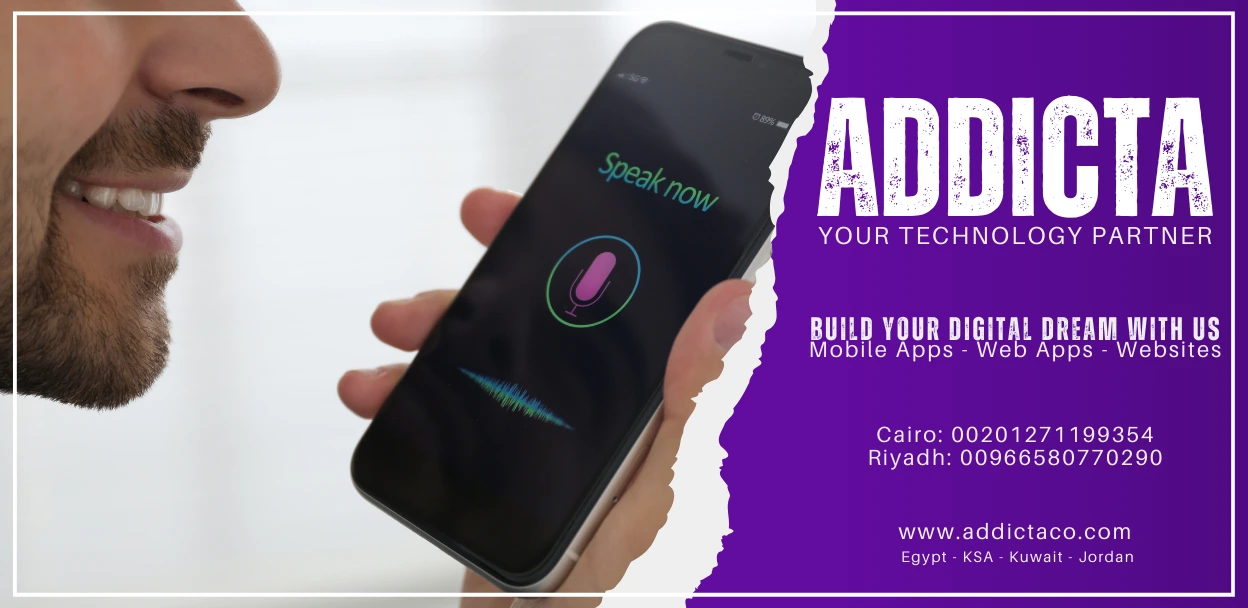What Is a Voice Recognition App?
A Voice Recognition App is a mobile application that allows users to interact with their device using spoken commands. This technology converts spoken language into text or interprets it to execute specific tasks. By leveraging the power of artificial intelligence (AI), voice recognition apps can understand human speech patterns, dialects, and accents, enabling seamless interaction between users and their devices. These apps are commonly used for voice search, controlling smart home devices, dictating text messages, and much more.
How Does It Work?
A Voice Recognition App functions by capturing spoken words through the device’s microphone, which are then processed using AI algorithms and natural language processing (NLP). The app breaks down the audio into smaller components and matches these against pre-defined language models to interpret meaning. With the help of machine learning, these apps continuously improve their accuracy by learning from user inputs over time. The advanced speech-to-text engine behind these apps converts spoken language into a machine-readable format, allowing the app to respond to user commands effectively.
Present AI-Driven Voice Recognition Systems
AI has significantly advanced the capabilities of the Voice Recognition App. Popular systems like Google Assistant, Siri, and Amazon Alexa have set high standards for AI-driven voice technology. These platforms leverage machine learning to enhance their understanding of natural language, enabling them to respond more intuitively to user queries. The integration of AI into voice recognition apps has also allowed developers to provide personalized experiences, as the apps learn user preferences, usage habits, and speech patterns to deliver more accurate responses.
How Have AI Voice Recognition Apps Occupied Space in the Mobile App Development Industry?
AI-powered Voice Recognition Apps have quickly become essential in the mobile app development industry. As more users turn to hands-free solutions, developers are integrating voice recognition features into various applications, from e-commerce platforms to navigation tools. This trend reflects the growing demand for more accessible, user-friendly apps that can perform tasks with simple voice commands. With advancements in AI and NLP, the potential of voice recognition apps in mobile development continues to expand, making them a key feature in next-generation applications.
Benefits of Voice Recognition in Mobile Apps
There are numerous benefits to incorporating Voice Recognition Apps into mobile applications. These include:
- Hands-free convenience: Users can perform tasks without touching their device, making it ideal for multitasking.
- Accessibility: Voice recognition technology improves app usability for individuals with disabilities, enabling them to navigate apps more easily.
- Speed: Tasks such as searching for information or sending messages can be done faster by voice than typing.
- Personalization: Voice recognition apps can be customized to understand specific user commands, making interactions more intuitive.
- Increased user engagement: Voice-controlled apps offer a more interactive and dynamic user experience, leading to higher engagement and satisfaction.
Challenges & Limitations
- Accuracy issues: Voice recognition apps may struggle to accurately interpret speech in noisy environments or when users have strong accents.
- Privacy concerns: Continuous listening for commands can raise concerns about unauthorized data collection and potential breaches of privacy.
- Difficulty with specialized language: Recognizing technical or industry-specific terminology can be challenging, limiting usability in certain fields.
- High processing power: Running voice recognition apps requires significant processing power, which can impact device performance.
- Battery consumption: The continuous operation of voice recognition features can lead to higher battery usage, affecting the device’s battery life.
Advantages of Integrating Voice Recognition Technology into Mobile Apps (Android/iPhone)
Integrating voice recognition technology into mobile apps provides a range of benefits for both Android and iPhone platforms. These advantages include:
- Enhanced User Experience: Voice commands allow for more intuitive and hands-free interactions, making apps easier and faster to use.
- Accessibility: Voice recognition improves app usability for individuals with disabilities, offering a more inclusive user experience.
- Increased Efficiency: Users can complete tasks such as searching, messaging, and controlling apps without the need for typing, significantly speeding up workflows.
- Personalization: Voice recognition technology can adapt to individual user preferences, providing personalized interactions and responses.
- Hands-free Operation: Ideal for multitasking, voice recognition apps allow users to perform tasks while on the go or when their hands are occupied.
- Wider Reach: With the growing popularity of voice assistants like Siri and Google Assistant, integrating voice recognition in mobile apps can attract more users.
How Much Does It Cost to Develop Voice Recognition Apps for Android or iPhone?
The cost of developing a voice recognition app for Android or iPhone depends on several factors, including the complexity of the app, the features included, the development team’s location, and the platform(s) being developed. On average, developing a basic voice recognition app can range from $30,000 to $50,000. More advanced apps with AI integration, multiple languages, and custom features could cost anywhere from $70,000 to $150,000 or more. Keep in mind that maintenance, updates, and scalability are also crucial to consider when budgeting for voice recognition app development.
Do You Want to Create Your App? – Feel Free to Contact Us at Addicta
Addicta is a top mobile app development company serving both Egypt and Saudi Arabia. Our team of skilled AI app developers is well-versed in cutting-edge digital technologies, including machine learning, natural language processing, text-to-speech, and speech-to-text, among others. With expertise in the latest mobile app development trends and programming languages, Addicta offers comprehensive, on-demand mobile app development services tailored to enterprises across a wide range of industries.

